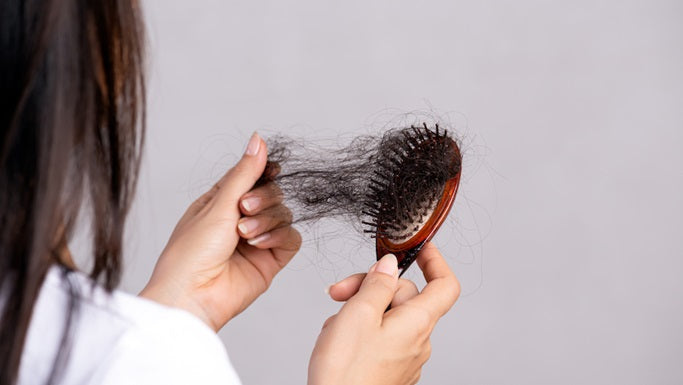

Hair loss can be a distressing experience, often causing significant embarrassment. While shedding 50 to 100 hairs daily is considered normal, consistent and excessive hair loss could be indicative of an underlying issue such as medical conditions, stress, or vitamin deficiencies.
To combat hair loss, assessing your diet is crucial. A healthy lifestyle plays a pivotal role in maintaining the desired thick and long hair. Below are key vitamins known for their role in promoting healthy hair growth:
-
Biotin (Vitamin B7):
- Stimulates keratin production, enhancing follicle growth.
- Found in foods such as eggs, meat, fish, nuts, sweet potatoes, and seeds.
- Recommended daily intake: 30 micrograms for adults.
-
Vitamin A:
- Facilitates the growth of hair cells by producing sebum, an oily substance that moisturizes the scalp.
- Sources include beta-carotene-rich foods like sweet potatoes, pumpkin, carrots, spinach, kale, cod liver oil, eggs, yogurt, and milk.
- Recommended daily intake: Up to 900 mcg for men and 700 mcg for women.
-
Vitamin C:
- Counters oxidative stress, a significant contributor to hair loss.
- Boosts collagen production and aids in iron absorption for healthier hair.
- Found in citrus fruits, peppers, strawberries, tomatoes, and guavas.
- Recommended daily intake: Up to 90 milligrams for men and 75 milligrams for women.
-
Vitamin D:
- Deficiencies can lead to conditions such as alopecia and excessive shedding.
- Sources include fatty fish, cod liver oil, fortified foods, and exposure to sunlight.
- Recommended daily intake: 600 IU for adults.
-
Vitamin E:
- Acts as an antioxidant, reducing oxidative stress and promoting hair growth.
- Found in sunflower seeds, spinach, avocados, and almonds.
- Recommended daily intake: 15 milligrams.
-
Iron:
- Fuels hemoglobin production, distributing oxygen for cell repair and growth.
- Present in foods like eggs, red meat, lentils, spinach, oysters, and clams.
- Recommended daily intake: 45 mg.
-
Zinc:
- Promotes hair growth and maintains healthy oil glands around follicles.
- Found in beef, spinach, wheat germ, pumpkin seeds, oysters, and lentils.
- Recommended daily intake: 11 mg for men and 8 mg for women.
While incorporating these vitamins into your diet or taking supplements may contribute to healthier hair, it's important to note that results may take months. Success depends on factors such as the underlying cause of hair loss, genetics, and overall lifestyle.

